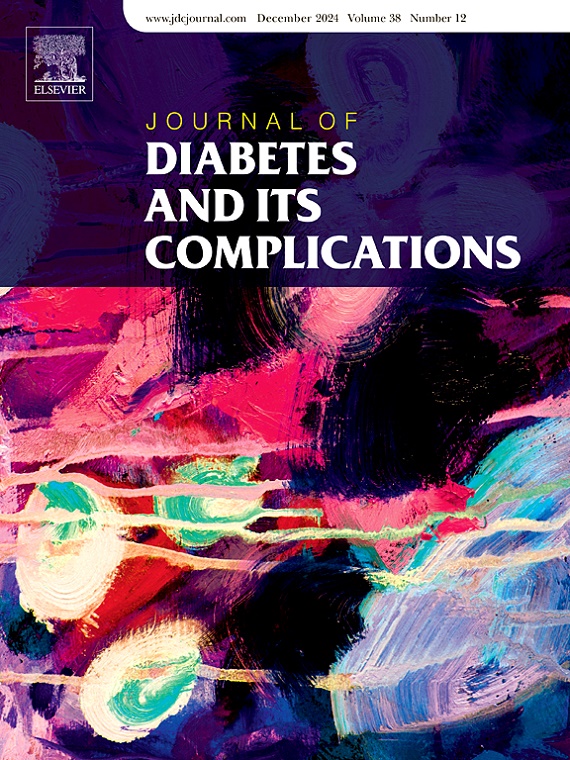What type 1 diabetes endotype is most suitable for anti-CD3 antibodies prevention trials?
IF 3.1
3区 医学
Q3 ENDOCRINOLOGY & METABOLISM
引用次数: 0
Abstract
Type 1 diabetes (T1D) is a heterogeneous autoimmune disease with multiple endotypes, each demonstrating distinct clinical and immunological characteristics. Teplizumab, an anti-CD3 monoclonal antibody, has emerged as a promising immunomodulatory therapy capable of delaying the progression of T1D in individuals with stage 2 disease. However, variability in therapeutic response suggests that certain endotypes may derive greater benefit from treatment. This review evaluates the suitability of different T1D endotypes (T1DE) for teplizumab prevention trials, with a particular focus on early-onset T1DE1 and T1DE2.
Clinical trials demonstrate that individuals under 15 years of age, who demonstrate the highest immune activity, marked by aggressive T-cell infiltration and rapid pancreatic β-cell destruction, experience the most significant delay in disease progression following teplizumab treatment, highlighting the importance of early intervention. Furthermore, shifting individuals from the rapidly progressing T1DE1 trajectory to the more gradual T1DE2 course may extend functional insulin production and improve long-term metabolic outcomes.
This paper underscores the need for expanded endotype-specific prevention trials and optimised screening protocols to identify high-risk individuals at the earliest stage. Future research should explore teplizumab's efficacy in younger populations and refine predictive biomarkers to enhance personalised intervention strategies in T1D management.
哪种1型糖尿病内型最适合抗cd3抗体预防试验?
1型糖尿病(T1D)是一种具有多种内型的异质自身免疫性疾病,每种内型都表现出不同的临床和免疫学特征。Teplizumab是一种抗cd3单克隆抗体,已成为一种有前景的免疫调节疗法,能够延缓2期T1D患者的进展。然而,治疗反应的可变性表明某些内型可能从治疗中获得更大的益处。本综述评估了不同T1D内型(T1DE)在teplizumab预防试验中的适用性,特别关注早发性T1DE1和T1DE2。临床试验表明,15岁以下的个体表现出最高的免疫活性,以侵略性t细胞浸润和快速胰腺β细胞破坏为特征,在接受teplizumab治疗后,疾病进展的延迟最为显著,突出了早期干预的重要性。此外,将个体从快速发展的T1DE1轨迹转变为更缓慢的T1DE2过程可能会延长功能性胰岛素的产生并改善长期代谢结果。这篇论文强调了扩大内源性特异性预防试验和优化筛选方案的必要性,以便在早期阶段识别高风险个体。未来的研究应该探索teplizumab在年轻人群中的疗效,并完善预测性生物标志物,以增强T1D管理的个性化干预策略。
本文章由计算机程序翻译,如有差异,请以英文原文为准。
求助全文
约1分钟内获得全文
求助全文
来源期刊

Journal of diabetes and its complications
医学-内分泌学与代谢
CiteScore
5.90
自引率
3.30%
发文量
153
审稿时长
16 days
期刊介绍:
Journal of Diabetes and Its Complications (JDC) is a journal for health care practitioners and researchers, that publishes original research about the pathogenesis, diagnosis and management of diabetes mellitus and its complications. JDC also publishes articles on physiological and molecular aspects of glucose homeostasis.
The primary purpose of JDC is to act as a source of information usable by diabetes practitioners and researchers to increase their knowledge about mechanisms of diabetes and complications development, and promote better management of people with diabetes who are at risk for those complications.
Manuscripts submitted to JDC can report any aspect of basic, translational or clinical research as well as epidemiology. Topics can range broadly from early prediabetes to late-stage complicated diabetes. Topics relevant to basic/translational reports include pancreatic islet dysfunction and insulin resistance, altered adipose tissue function in diabetes, altered neuronal control of glucose homeostasis and mechanisms of drug action. Topics relevant to diabetic complications include diabetic retinopathy, neuropathy and nephropathy; peripheral vascular disease and coronary heart disease; gastrointestinal disorders, renal failure and impotence; and hypertension and hyperlipidemia.
 求助内容:
求助内容: 应助结果提醒方式:
应助结果提醒方式:


